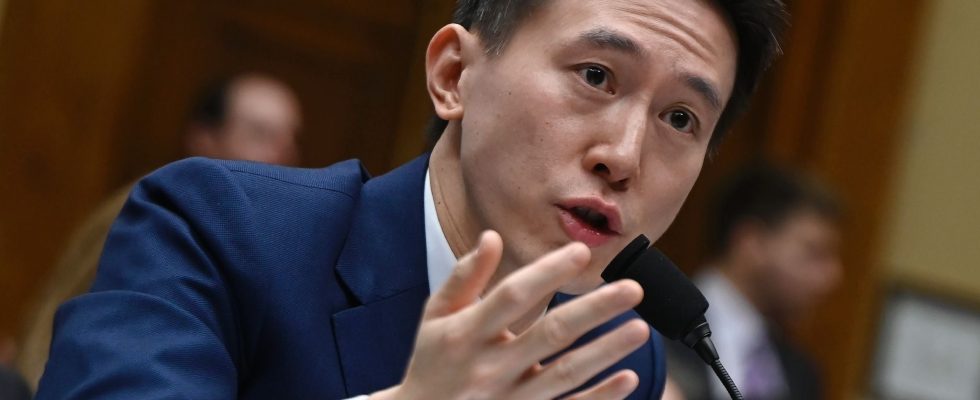TikTok is not Chinese. For months, this message has been hammered home by its management in order to convince Americans that they have no reason to ban the social network. A risk that is becoming clearer: the American House of Representatives adopted a bill on March 13 providing for the ban on TikTok in the United States if the platform does not sever its ties with its parent company ByteDance. The outcome of the vote in the Senate remains uncertain.
On paper, it’s not false: ByteDance is registered in the Cayman Islands. Its CEO, Shou Zi Chew, is based in Singapore, and a large part of its management is in the United States or Europe. In practice, it is more complicated. “ByteDance Ltd is partly owned by a Chinese fund. Above all, the founder Zhang Yiming holds 20% of the capital. However, Bytedance is probably a “variable interest entity” (VIE), a very common structure for globalized Chinese companies, whose statutes allow a minority holder to exercise control. Zhang Yiming is subject to reinforced control by the Chinese authorities, having had to make his public “self-criticism” in 2018, points out the report of the French Senate commission of inquiry on TikTok, published last July.
This report also underlines that TikTok needs the technologies, patents and engineers of the Beijing branch, the real heart of the company ByteDance, subject to the control of the authorities via a “golden share”. TikTok’s activity in the United States cannot be sold to an American group, as certain elected officials wish, without Beijing giving the green light. What the Chinese government would “firmly oppose”, its Minister of Commerce said last year. ByteDance was in fact created by two Chinese, Zhang Yiming and Liang Rubo, and it is there that the group developed. A good number of its employees are located there.
Liar poker between China and the United States
It is obviously in bad faith that Americans accuse the functioning of TikTok of being stupid or addictive – their own social networks have very similar mechanics. The difficulties that TikTok encounters internationally are, however, symptomatic of what is slowing down the Chinese tech’s international ambitions. The country has become a major innovation hub in the world. It is home to a number of technological giants (Baidu, Alibaba, Tencent, Huawei, etc.). And China is at the forefront in 5G, AI and even autonomous cars. In recent years, it has also filed the most international patents, ahead of the United States.
The welcome it reserves for foreign digital companies, however, gives food for thought to those who advocate banning its apps and services. Facebook, Twitter, Google… Western platforms are not welcome in China. And the great Firewall, this digital shield which prevents the country’s citizens from accessing numerous foreign sites, has continued to tighten over ten years. That Chinese officials denounce the United States’ intolerable attack on freedom of expression is comical when we know that the “Western” version of TikTok is not authorized in China.
Beijing’s desire to control everything, particularly the virtual sphere, risks playing tricks on it. While China is a leader in classical AI, it is surprisingly behind in generative AI, which will be the major technology of the years to come. A delay, among other things, linked to the fact that it is reluctant to let go of these new AIs. Beijing wants to ensure that they only respond to the population in accordance with the values of the Party. When the innovation they bring is based precisely on their unpredictable nature. The benefits of letting go.
